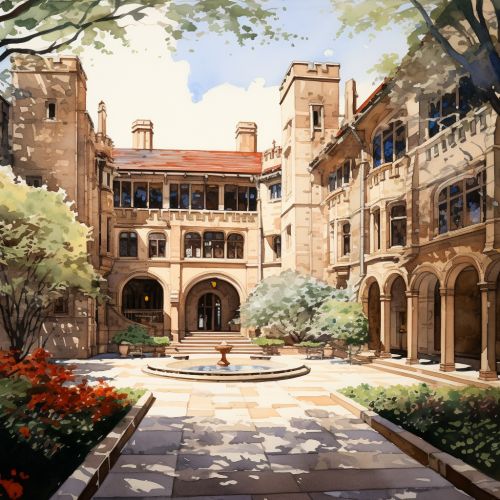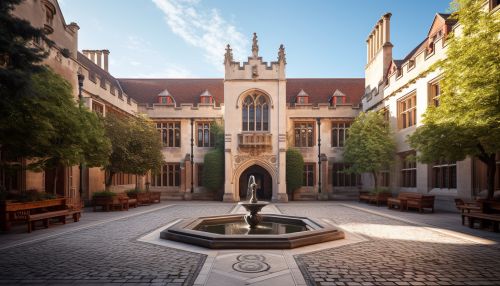Friedrich Ratzel
Early Life
Friedrich Ratzel was born on August 30, 1844, in Karlsruhe, Germany. He was the son of the manager of household staff of the Grand Duke of Baden. Ratzel's early education was at the gymnasium of Karlsruhe, where he showed an interest in the natural sciences.
Education
In 1863, Ratzel enrolled at the Polytechnic Institute in Karlsruhe, where he studied the natural sciences. However, his studies were interrupted by the Austro-Prussian War in 1866, where he served as a correspondent for the Kölnische Zeitung, a Cologne newspaper. This experience sparked his interest in geography, and after the war, he resumed his studies at the universities of Heidelberg, Jena, and Berlin.


Career
Ratzel began his professional career as a traveler and writer, exploring Europe, the Middle East, and North America. His travels influenced his later work in geography and anthropology. In 1876, he was appointed a professor of geography at the Technical University of Munich. In 1886, he moved to the University of Leipzig, where he established the first department of geography in Germany.
Contributions to Geography and Anthropology
Ratzel is considered one of the founders of modern human geography and anthropology. He is best known for his work on the concept of Lebensraum or "living space," which he developed in his book "Anthropogeographie." Ratzel argued that societies, like organisms, need space to grow and develop. This idea later influenced the geopolitical strategies of several nations, most notably Nazi Germany.
Ratzel also developed the concept of the "geographical pivot of history," arguing that the geographical location of a society significantly influences its development. This idea has been influential in the field of geopolitics.
Later Life and Legacy
Ratzel continued to teach and write until his death on August 9, 1904. His ideas have had a lasting impact on the fields of geography and anthropology, and his concept of Lebensraum continues to be studied and debated by scholars.
